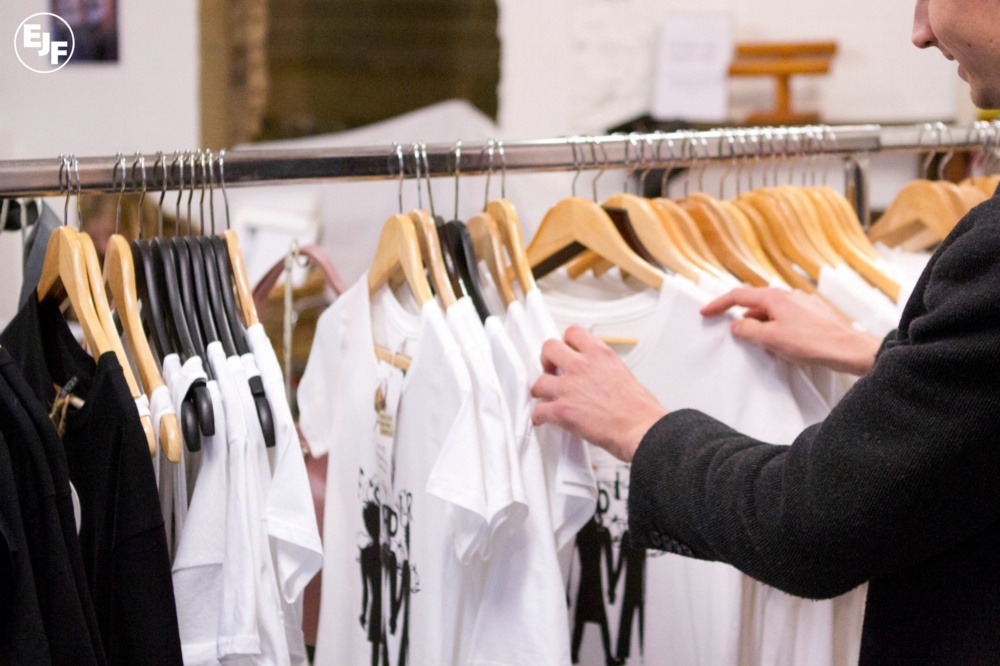
How our desire for fast fashion is costing the earth
Whether it is factory workers working long hours for less than a living wage, children picking our cotton or sewing our fabrics instead of attending school, or farmers and garment workers poisoned, injured or even killed in the workplace, someone, somewhere is paying for our global addiction to fast fashion
“Fast fashion isn’t free. Someone, somewhere is paying” Lucy Siegel
It is now easier than ever to get a large amount of clothes at an extremely low price. But what is the true cost of the bargain clothes that fill our wardrobes?
Whether it is factory workers working long hours for less than a living wage, children picking our cotton or sewing our fabrics instead of attending school, or farmers and garment workers poisoned, injured or even killed in the workplace, someone, somewhere is paying for our global addiction to fast fashion.
This week is Fashion Revolution Week. Four years on from the Rana Plaza factory collapse in Bangladesh, this year’s event is honouring its victims.
The accident, which claimed the life of 1,138 garment factory workers and injured 2,500 more, shined the global spotlight on the true impact of our wardrobes, but it is far from being an isolated incident.
In 2012, a fire at the Tazreen fashion factory in Dhaka took the lives of 117 workers, while a similar episode at Ali Enterprises factory in Pakistan killed 254 people - both of them just months before the Rana Plaza incident.
Most of these tragedies go unnoticed.
No fashion item is worth the loss of an innocent life. Yet, despite public pressure in the wake of the Rana Plaza the reality is that our clothes are still being produced by workers receiving a salary not enough for the dignified survival of their families, and unable to speak out in fear of being fired or even arrested for doing so.
Only six of the 100 biggest fashion brands give their workers the right to set up unions.
Furthermore, the ILO estimates that 170 million children are still engaged in child labour, many of them employed by the fashion industry, and in countries across the world, forced labour remains rife as companies cut margins and put profit over people.
But while our want for a quick fashion fix is leaving human dignity by the wayside, this ever growing demand is also having huge environmental consequences.
“There is no such thing as cheap clothing. Someone, somewhere is paying the real price” EJF Executive Director, Steve Trent
Cotton crops are responsible for around $2 billion worth of toxic pesticides each year, with huge impacts on both human and environmental health.
Globally, the fashion industry is worth 10% of global carbon emissions, making it the second largest industrial polluters - surpassed only by the oil industry.
This is a huge environmental footprint considering millions of tonnes of these textiles end-up discarded every year. In the US alone, 1.2 million tonnes of textile waste is created annually.
At EJF we believe that fashion doesn’t have to cost the earth.
That’s why we are working to raise awareness of the true impact of our clothing choices. We believe that consumers have a role in shaping the future of fashion - by choosing wisely, we have the power drive the change we want to see in the fashion industry.
By asking “Who made our clothes?” and how they were produced we can demand greater transparency.
But it is also time policymakers and big businesses started lead by example: they must listen to the consumers’ pleas for a more sustainable and ethical fashion industry, and take sufficient measures to make sure those pleas become reality.
Transforming the fashion industry is more than just profitability - it is about protecting our planet and standing up for the rights of thousands of workers across the globe.
EJF’s JUST-For t-shirt project works with designers to raise awareness of the true cost of cotton. 100% of the profits from our sales goes back into our work to protect people and planet.
SIGN UP FOR OUR EMAILS AND STAY UP TO DATE WITH EJF